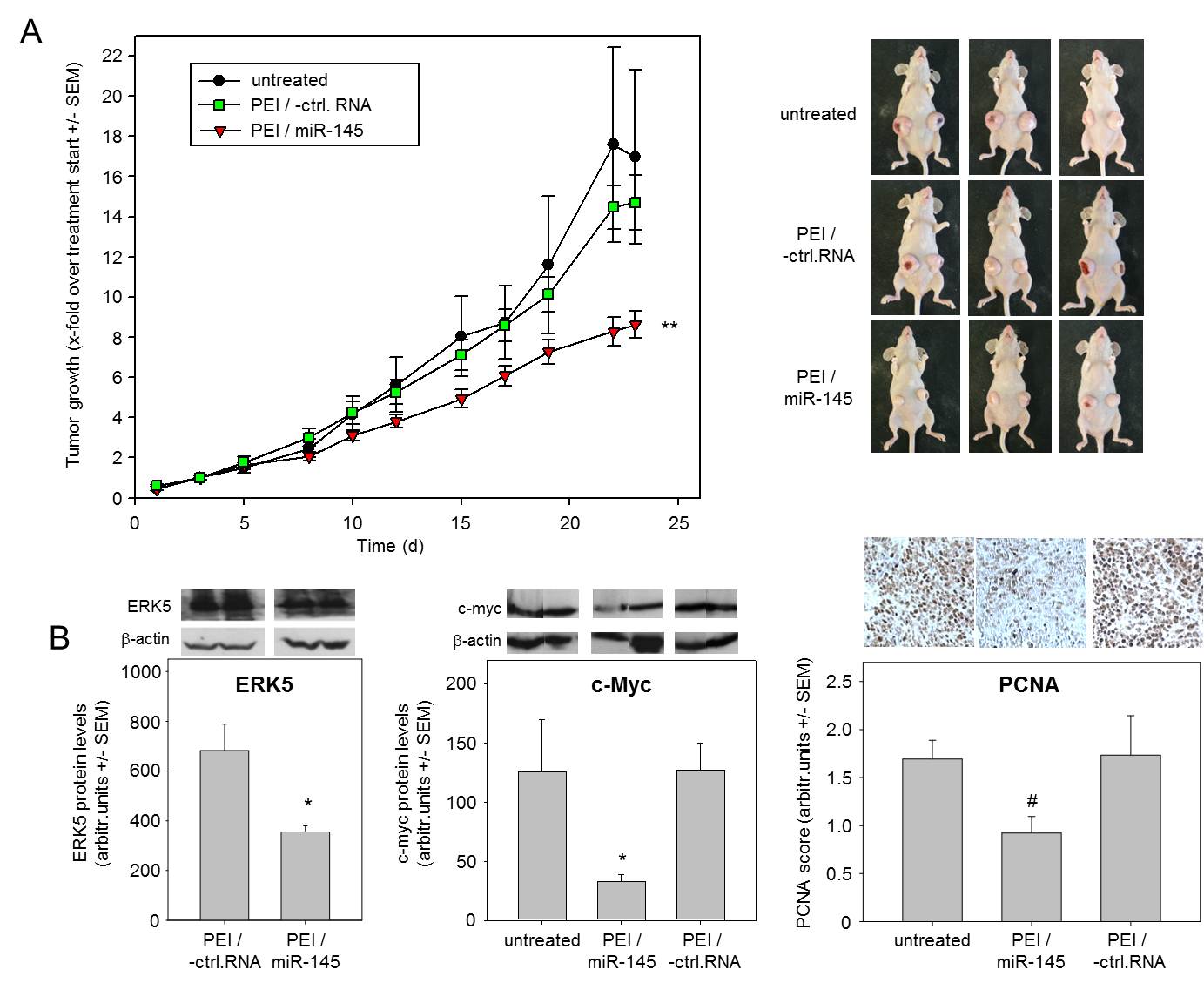miRNA replacement
miRNA replacement therapy and therapeutic inhibition of miRNAs
Under pathological conditions, several miRNAs are aberrantly expressed. For example, decreased levels of the pro-apoptotic and anti-proliferative miRNA-145 are observed in colon carcinoma. The role of other miRNAs in cancer, like miR-33a, had not been analysed so far. Recently, we demonstrated the tumor-inhibitory role of miR-33a and identified the proto-oncogenic kinase Pim-1 as its direct target. Comparably to siRNA-mediated knockdown of Pim-1, miR-33a reduces Pim-1 expression and thus inhibits proliferation in leukemia and in colon carcinoma cells by decelerating cell cycle progression. We have introduced polyethylenimine (PEI)-based nanoparticles for systemic or local miRNA administration in vivo. PEIs mediate miRNA protection, delivery to target organs, cellular uptake and intracellular release, with the molecular structures of PEIs or PEI derivatives being critical for their efficacy, biocompatibility, and in vivo tissue distribution. MiRNA replacement therapy through systemic or local injection of PEI/miR-145 complexes results in efficient miRNA delivery and in antitumor effects in s.c. colon carcinoma xenograft mouse models. Likewise, tumor growth inhibition is observed upon treatment with PEI-complexed miR-33a. This is due to the miR-33a-mediated downregulation of Pim-1 expression, comparable with the Pim-1 knockdown through PEI/siRNA complexes. Based on these results, we develop the PEI-complexation of miRNAs as a novel strategy in miRNA replacement therapy, with miR-145 or miR-33a being promising candidate miRNAs. Furthermore, this project aims at extending the use of polymeric nanoparticles towards the therapeutic in vivo delivery of miRNA-inhibitory nucleic acids.
